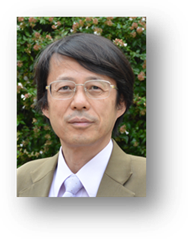报告人: Kazushi Mashima (Osaka University)
时间: 2019年1月17日(周四)下午3:30
地点: 化学A楼528演讲厅
邀请人: 张万斌教授
演讲者简介

Kazushi Mashima received his PhD degree (1986) from Osaka University. Before receiving his PhD degree from Osaka University, he was appointed to be an Assistant Professor at Institute for Molecular Science, Okazaki National Institutes in 1983. He moved to Faculty of Engineering, Kyoto University as an Assistant Professor in 1989, and then to Faculty of Science, Osaka University as an Assistant Professor in 1991. He was promoted to an Associate Professor at Faculty (now Graduate School) of Engineering Science, Osaka University in 1994, and then to a full Professor at Graduate School of Engineering Science, Osaka University in 2003.
He worked as a post-doctoral fellowship with Professor M. A. Bennett, Australian National University in 1992 and then as an Alexander von Humboldt fellow with Professor W. A. Herrmann, Technisch Universität München in 1993.
He received Progress Award in Synthetic Organic Chemistry, Japan in 1994, BCSJ Award (the best paper award of Bull. Chem. Soc. Jpn.) in 2000, The Chemical Society of Japan Award for Creative Work for 2008, The 9th Green and Sustainable Chemistry Award, Awarded by the Ministry of Education, Culture, Sports, Science and Technology in 2010, The Award of the Society of Polymer Science, Japan in 2010. Recently, he received The Chemical Society Japan Awards in 2017 and Prize for Science and Technology (Research Category), The Commendation for Science and Technology by the Minister of Education, Culture, Sports, Science and Technology in 2018.
His current research interests lie in the area of organometallic chemistry for metal-catalyzed organic transformations, including direct amination of alcoholic substrates, asymmetric hydrogenation, and polymerization catalysis as well as enzyme-like catalysis composed of polynuclear assembled metals.
He is the principle PI of Grant-in-Aid for Scientific on Grant-in-Aid for Scientific Research on Innovative Areas (2015-2019), MEXT, Japan, “Precise Formation of a Catalyst Having a Specified Filed for Use in Extremely Difficult Substrate Conversion Reactions” (http://precisely-designed-catalyst.jp/index-e.html), where 60 PIs are cooperatively collaborated.
